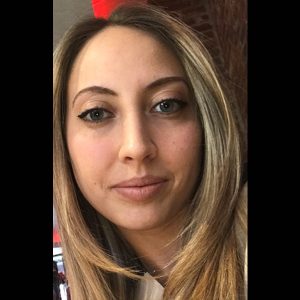
11 Dec NYC Algebra 1 Tutor
NYC ALGEBRA 1 TUTOR

WE travel to YOUR NYC home:
WE also travel to:
Although many students believe math is impossibly difficult, teachers agree it takes a little longer to learn than any other subject. Also, other considerable factors hinder the learning of mathematics in general and algebra in particular.
While memorizing many arithmetic facts is necessary, understanding math concepts is key to using them effectively, particularly in algebra and geometry.
That said, algebra tutors or teachers of this subject must teach students the principles required to solve various equations. And they must understand how to use these ideas because they are not just facts to be memorized.
So, if you are an algebra student and prefer to study from books, algebra 1 tutoring is a great way to learn the subject! Your NYC algebra 1 tutor will conduct lessons for you, address any queries you may have regarding the course material, and provide examples of how to solve issues.
Moreover, your NYC Algebra 1 tutor can support your learning even if you are studying at school by offering private lessons where they can give you their full attention and help you with the subjects you specifically struggle with.

Here are the Algebra 1 Key Components:
Algebra 1: What Is It?
In Algebra 1, students learn how to utilize numbers, letters, and mathematical symbols to solve problems. They learn to evaluate expressions, write graph functions, solve quadratic equations and comprehend inequalities.
Students often develop the conceptual grasp and procedural fluency of ideas needed for difficult math courses like Geometry and Calculus. Success in Algebra 1 largely depends on abstracting real-world events into mathematical models (expressions, equations, and functions).
What are The Algebra Basics?
The foundational elements of algebra are expressions, numbers, variables, constants, linear equations, and quadratic equations. Additionally, it incorporates basic arithmetic operations like subtraction, addition, multiplication, and division within the algebraic formulas.
Multi-Step Equations and Inequalities
Like solving equations, solving multi-step inequalities requires changing both sides to keep the inequality’s “balance.” Studying The Properties of Inequality teaches you how to subtract, multiply, or divide within an inequality.
Relations and Functions
In algebra, “Relations and Functions” is the most vital topic. The two terms, relations and functions, are different and have separate mathematical meanings.
The relation illustrates the relationship between INPUT and OUTPUT. A function, however, is a relation that provides one OUTPUT for each given INPUT.
Linear Equations
An equation is considered linear if the variable’s maximum power is consistently 1. Another name for it is a one-degree equation. The standard form of a linear equation in one variable is the form Ax + B = 0. Here, x is a variable, A is a coefficient, and B is constant.
Direct and Inverse Variation
When x is not equal to zero, an equation of the form y = kx describes the linear function known as direct variation. The equation of the form xy = k defines the nonlinear function known as inverse variation when x is not equal to zero and k is a nonzero real number constant.
Systems of Equations and Inequalities
A collection of equations with the same variables is known as a system of equations. The only difference is that you’re working with inequalities rather than equations in a system of inequalities. To solve a system like this, one must identify the values of the variables that will cause each inequality to be true at any given moment.
Exponents and Exponential Functions
An exponential function is indicated when the input variable x appears as an exponent in the formula f(x) = ax. The exponential curve is influenced by both the exponential function and the value of x. Where a>0 and a1 are not true. Any real number is X.
Polynomials and Factoring
The opposite of multiplying polynomials is factoring polynomials. If we divide a polynomial by its components after factoring it, the remainder equals zero. When factoring a polynomial, we should always search for the GCF before determining whether the resulting polynomial factor can be factored in once more.
Quadratic Equations
An algebraic equation of the second degree in x is a quadratic equation. The quadratic equation is written as ax2 + bx + c = 0, where x is the variable, a and b are the coefficients, and c is the constant term.
Linear, Quadratic, and Exponential Functions
The three primary categories of functions are exponential, quadratic, and linear. Linear functions have constant first differences. Quadratic functions have constant second differences. Exponential functions have a constant ratio.
Radical Expressions and Equations
A radical equation is one in which a variable is a radicand of a radical expression. As is standard when solving equations, we must always consider both sides of an equation while making changes.
Rational Expressions and Equations
The quotient of two polynomials is a rational expression. Any equation with one or more rational expressions is referred to as a rational equation. The denominator of rational formulas typically contains a variable.
Statistics
– is the field of study that deals with gathering, organizing, analyzing, interpreting, and presenting data.
Students of all ages receive one-on-one guidance in all instructional materials, exam preparation, and executive function therapy. At Themba Tutors, we take the time to help students and clients appreciate their strengths and succeed in areas where they need to improve. We offer personalized tools for each of our clients to help them become more aware of their individual needs as they work toward short-term goals. These skills will assist our students/clients in achieving their long-term goals.
TESTIMONIALS
Chris has been wonderful working with U on math for the past few months, she adores him!
-Z.K.
Jordan tutored our son in 7th grade math. We had a wonderful experience with Jordan. He was knowledgeable, always on time, and came up with some good strategies for our son to tackle difficult math concepts. Our son has a nonverbal learning disability so working with him can be somewhat challenging at times. But Jordan was always up to the task!
-Anne S.
Ethan was very happy with the sessions and I could see his increased confidence in math classes at school. Ethan’s grades were generally improved in his IB maths assessments and his MAP percentile ranking increased from 78 to 87%. During this time, Ethan missed 2 of his 5 school Math classes each week for tennis training. Sam provided the math support we needed at home to cover the curriculum but also worked well to fill gaps in his knowledge from previous years.
-Caroline B.
My son, a junior in a private high school worked, with a wonderful tutor from Themba to get ready for his SATs. I spoke with Blythe and she asked detailed questions about my sons strengths and weaknesses. She put me in touch with Don, who worked beautifully with my son. Don immediately understood where my son needed help and focused their time together on specific areas of need. He also recognized my sons strengths ( math )and was able to accelerate his understanding in those areas. My sons score jumped 190 points! The individualized instruction he got from Themba and Don was amazing! I highly recommend these wonderful people.
-Marie W.
I thought Paul was terrific and our son did too! Paul was particularly helpful on the math section of the ACT and math in general. Paul had an amazing rapport with our son, and that made the twice weekly commitment, for tutoring, fine for our son, which is really important. We highly recommend Paul!
-Martha P.
MEET OUR NYC ALGEBRA 1 TUTORS WHO COULD COME TO YOUR HOME

MELISSA K.
Certified Math and Special Education Teacher, MS Math Education

JEFFREY
Master’s in Mathematics Education(5-9)

LEAH
Bachelor’s degree in Secondary Education with a Concentration in Mathematics, M.S. in General and Special Education (grades 1-6)

AARON
Master’s in Math Education

TRACY
Certified Special Education Teacher

WILL
Master of Science, Special Education

KARINA
Masters in Math Education

EVAN
Master’s in Leadership in Math Education, Bachelor’s Degree in Mathematics

CAILIN
M.A. – Special Education
**Guarantee: It’s critical that whoever receives our tutoring services connects with the specialist, the specialist has expertise in the area of need, and is available to travel to you. If you are not 100% satisfied with our services, we are 100% committed to finding you the right professional.
We Also Offer:
Chat with Themba Tutors Today! Our NYC Algebra 1 Tutors are ready to help you right now!
FREE CONSULTATION!!!
Call: (917) 382-8641, Text: (833) 565-2370
Email: [email protected]
(we respond to email right away!).
Craig Selinger
Latest posts by Craig Selinger (see all)
- Psychotherapy and Support Services at Cope With School NYC - April 12, 2024
- NYC Parents of Teens Support Group - April 8, 2024
- Here I Am, I Am Me: An Illustrated Guide to Mental Health - April 4, 2024




No Comments